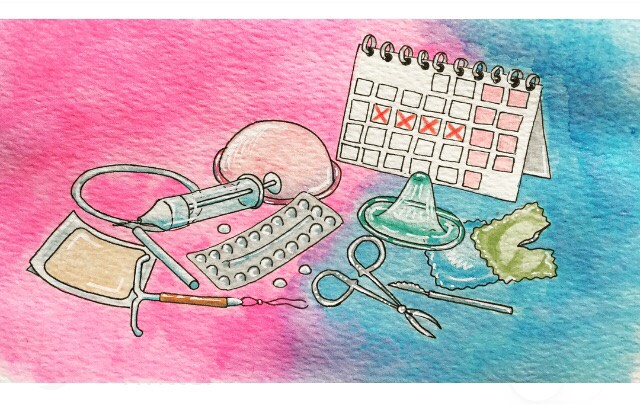Your choice of contraceptive method is the most personal decision you can make, and it is not for anyone but you to decide. However, what you need to make this decision are information and a voice, and when it comes to contraception and mental health, we are distinctly lacking in both.
I don’t share my experience to scare anyone who feels healthy and comfortable in their contraceptive choices into coming off hormones, but to give voice to a story I know so many will relate to and encourage others to reflect on how their mental health might have been affected by their contraception.
In July 2015 I started taking Rigevidon. At the time, I noticed no difference in my mood. My skin improved and my cycle became more predictable, a welcome change from the irregular, painful periods that I was used to. It made sense to keep taking the pill as a contraceptive, as the side effects seemed only to be bonuses.
Then I started university, and things started to change. Over my first year and a half at Edinburgh, I developed anxiety that escalated until I was dealing with almost daily panic attacks, and barely functioning as a student.
Though the way in which this manifested itself over those 18 months varied, the constant thread was a pervading sense of grey. I lost the ability to feel real joy, and the only extreme I still knew was panic.
It was like seeing in black and white, with the volume turned up too high. After going through counselling and feeling no better, I mentioned to the GP that I felt the pill could be affecting my mental health. I was happy to be complicit when she dismissed this, as I still didn’t want to believe that the tiny, convenient pill that calmed my skin and gave me painless periods could also be causing me to struggle this much.
A few weeks later though, I stopped taking Rigevidon. It took a couple of weeks for the hormones to stop affecting me, but once they did, the black and white lifted. I haven’t had a panic attack since; I am excited by my uni work, and I can put more of myself into everything I do.
Telling your GP that you think your contraceptive might be affecting your mental health is daunting because it is so often met with disbelief. I have heard of many people, including doctors, claim that there is no proof of the pill causing mental health problems.
However, this is not the case. In 2016, a Danish study was released showing women taking the combined contraceptive pill were 23 per cent more likely to have depression than those not on hormonal contraception, and those taking the progestin-only pill were 34 per cent more likely. Among teenagers, this number rose to 80 per cent for the combined pill.
Most shockingly, teenagers taking the progesterone-only pill were twice as likely to be diagnosed with depression than their counterparts not on any hormones.
So go to your doctor, and be stubborn. Many are prescribed the pill as young as 15. This means whilst going through puberty, having formative experiences, and perhaps becoming sexually active, you are taking hormones that aren’t yours.
This isn’t always a bad thing, but it is also not always without consequences. If you started hormonal contraception when you were 15 and you’re now 20, your body will have changed significantly during that time. It is still worth being mindful of how your mood correlates to your monthly cycle.
Period tracking apps like Clue can be useful for this. Most importantly, your mental health is more important than anyone’s sexual gratification. If you are considering coming off the pill, but you are with someone who is dissuading you, you deserve better. The wellbeing of two individuals should always be the utmost priority in a relationship.
We are all told to do our research before beginning any contraception. Of course, this involves familiarising yourself with options and statistics, but it should also mean getting to know yourself and your cycle before making any decisions.
Consider keeping a diary to track your mood for one cycle before using hormonal contraception, and do the same for a few months after you begin it. Note any changes, and keep in tune with your body.
Illustration: Amber Young

